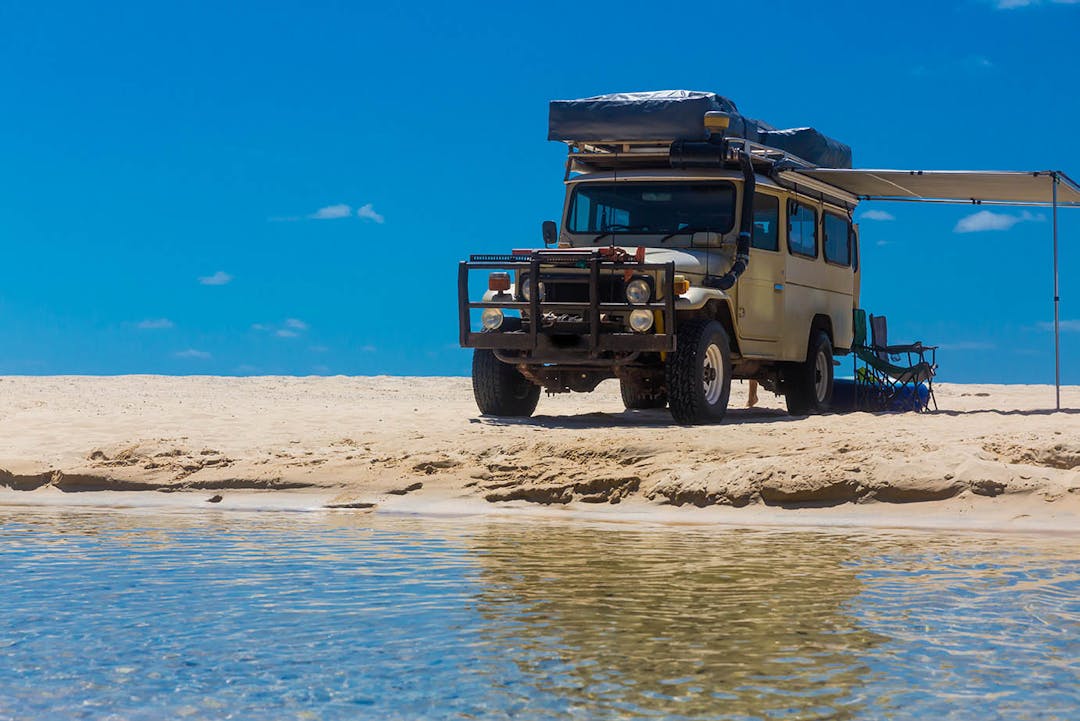Infringement Notices and Fines may now be issued to drivers who do not comply with Coffs Harbour City Council's Vehicles On Beaches Policy.
Signage is now in place advising of which beaches the general public may access with vehicles in the Coffs Harbour Local Government Area, and which beaches are closed to vehicles other than those operated by relevant authorities, emergency services and licensed fishers.
The Conditions of public vehicle access to beaches and details of accessible beaches are available in the Documents section of this page. Please refer to the Vehicles on Beaches Policy.
The community is encouraged to Report to Council any illegal vehicle access or driver behaviour on beaches, using the https://www.snapsendsolve.com/ App.
Further information about the Policy and beach access for vehicles is available from Council's Rangers: phone Customer Services on 66484000.
Balancing public safety, recreational activities and environmental protection are behind a new ‘Vehicles on Beaches’ Policy adopted by Coffs Harbour City Council on April 23, 2020.
“Beaches are highly valued by both the local community of Coffs Harbour and the many visitors to our region,” said Mick Raby, Council’s Director Sustainable Infrastructure. “They are a significant driver of tourism for the region and support a wide range of recreational activities, including fishing. At the same time, beaches and their dunes are also vital ecological habitats to a variety of native flora and fauna, as well as offering protection from coastal erosion processes.”
There have been long-held concerns by many members of the community in regards to the environmental impacts of 4WDs on beaches. These include damage to dunes and the impacts on minute organisms in the sand, the risks to endangered Little Tern colonies, breeding turtles and shore birds. In addition, there have been safety concerns for other beach users as our coastal suburb populations grow.
The adopted Policy is the result of a community survey carried out in January and February 2019 that attracted 365 responses and consultation with key stakeholders such as fishing and 4WD clubs, professional fishermen and relevant NSW Government bodies.
“We believe this Policy represents a balanced approach that allows the 4WD and fishing community to continue to enjoy these natural assets, while protecting the safety of other beach users and the sensitive and dynamic beach environment,” said Mr Raby.
The main points of the Policy are:
- Boambee Beach – driving area reduced to exclude the mouth of the Boambee Creek estuary to reduce conflict with dog off leash, family usage and environmental sensitivity.
- Hearnes Lake Beach – vehicles no longer permitted due to environmental sensitivity. North of Hearnes Lake Road to Willis Creek comprises a nesting area for the endangered little terns and also has NPWS records of sea turtles nesting (Green and Loggerhead turtles). The adopted Hearnes Lake Estuary Management Plan recommends that the current vehicle access point is closed due to the need to cross the lake entrance channel to gain access to the beach.
- Darkum Beach – removed due to limited vehicle accessibility. Assessment indicates that due to the topographic constraints no sustainable, practical access can be maintained.
- Woolgoolga Back Beach – The allowable area has been limited to north of the access point to keep vehicles away from the Creek entrance. This is in response to the Willis Creek Estuary Coastal Zone Management Plan which notes that the Willis Creek entrance may move to the north as a result of coastal processes responding to sea level rise and other climate change impacts. This may be reviewed in the future as these processes impact further on the existing car park, 4WD access to the beach and associated infrastructure.
- Arrawarra Beach – Arrawarra Headland to Arrawarra Creek entrance. Vehicles no longer allowed to reflect Solitary Island Marine Park (SIMP) provisions and competing uses.
- Corindi Beach – Access has been closed for public safety reasons by the NSW Department of Planning, Industry and Environment, which manages this area of Crown Land through a Reserve Committee.
- Station Creek Beach via access through Yuraygir National Park and North Beach, part of Bongil Bongil National Park, are now included within the Policy. Users already require a NPWS Parks Pass to access this beach and associated compliance with National Parks regulations.
Under the Policy, provisions have been included for parking on Arrawarra, Sandy and Sawtell Beaches to assist with the launching and retrieval of boats because of the distance to the nearest carpark.

